Australian Tropical Rainforest Plants - Online edition
Alloxylon flammeum P.H.Weston & Crisp
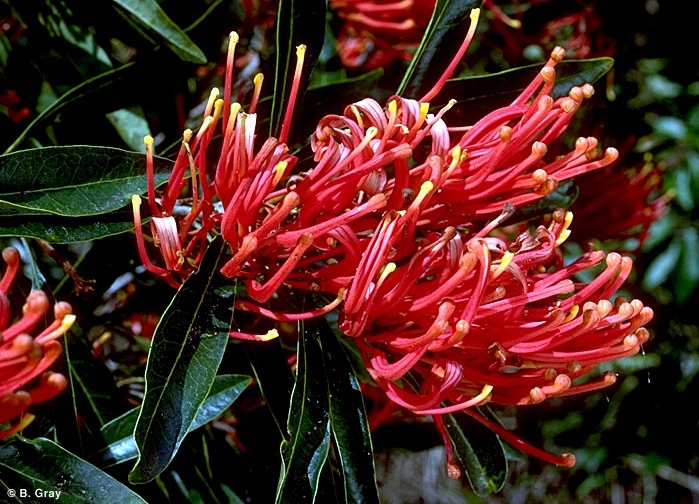
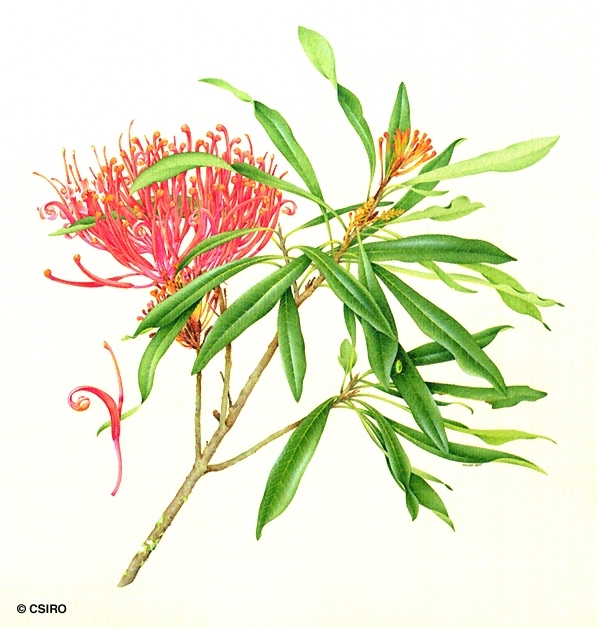
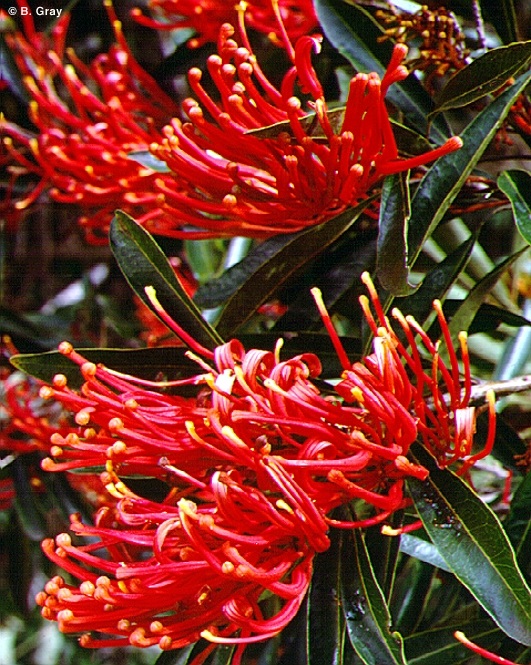
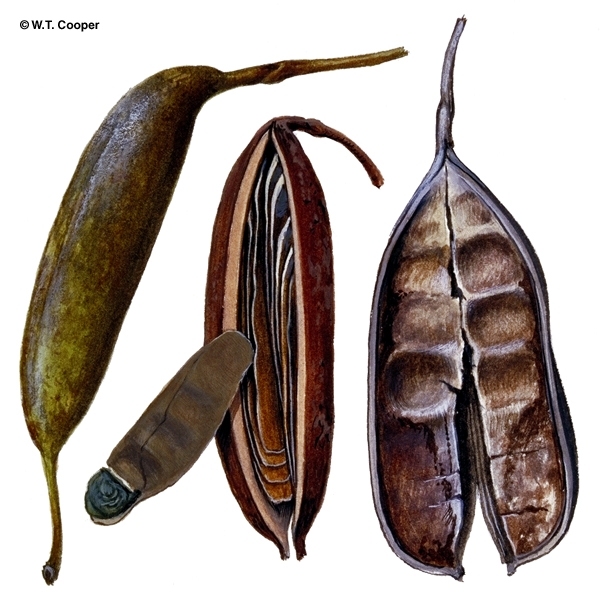

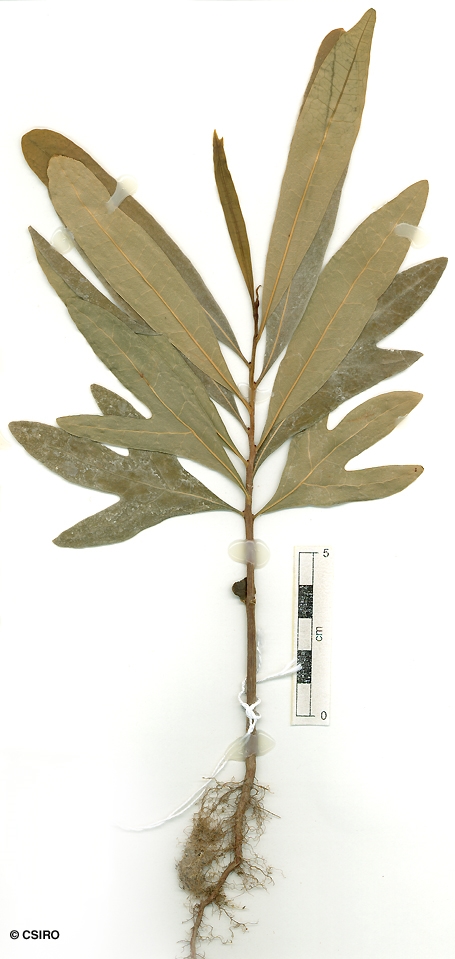
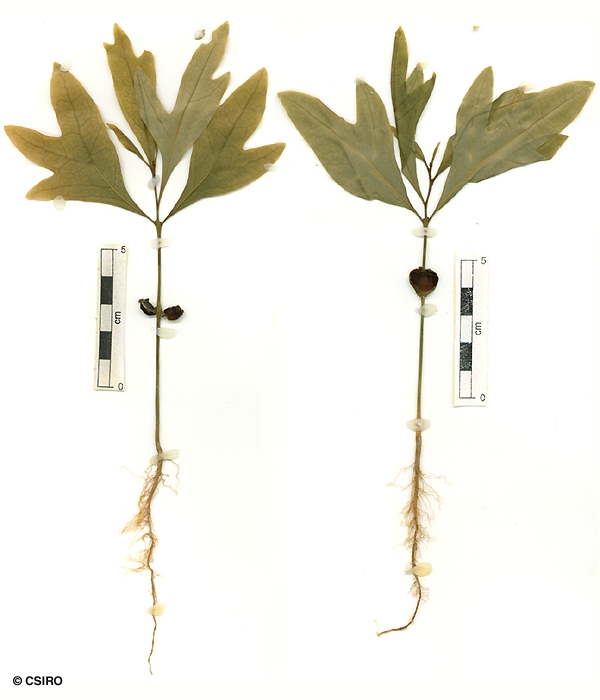
Satin Silky Oak; Satin Oak; Pink Silky Oak; Orange Tree Waratah; Oak, Satin Silky; Oak, Pink Silky; Oak, Satin
Oak grain in the wood and inner blaze.
Leaf blades about 8-25 x 2-4.5 cm. Lateral veins forming definite loops well inside the blade margin. Oak grain in the twigs.
Pedicels paired, very long, more than half the length of the perianth, common peduncle absent. Pedicels and the outer surface of the tepals ferruginous pubescent. Tepals red, about 3.5-5 cm long. Hypogynous glands absent. Ovules about 8-9.
Fruits +/- spindle-shaped, about 7-10 cm long. Seeds winged at one end, the wing many times the length of the seed.
Cotyledons broadly obovate, about 8-10 x 10 mm. First pair of leaves with lobed margins. Third and fourth leaves usually lobed. At the tenth leaf stage: leaf blade +/- linear, apex obtuse or rounded, base attenuate, glabrous, lateral veins forming definite loops inside the blade margin; terminal bud clothed in rusty red hairs. Seed germination time 12 to 14 days.
One of the most outstanding and recent introductions to horticulture producing an outstanding display of red flowers.
Produces a beautiful soft, silky textured timber with a conspicuous oak grain.
Wood specific gravity 0.53 Cause et al. (1989).





